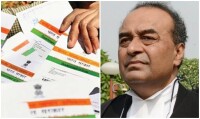Sanjay Tiwari Review of Chambers and Office of Mr. Muk...
The Supreme Court of India is facing its worst cri...
The Supreme Court of India is facing its worst crisis of credibility since the Emergency. With an occasional exception, the quality of the court s reasoning, the inconstancy of its judgment, the abdication of its constitutional role in some cases, and its overreach in others, are already denting its authority. But the institutional crisis that the Supreme Court has now created for itself will puncture more holes in the authority that it so valiantly tried to exert. It will also create the conditions under which it will be easier to legitimise diluting judicial independence.
The current crisis was occasioned by an order passed by Justice J Chelameswar to constitute a five-judge bench in a petition filed by CJAR that demanded that a SIT be constituted to look into an alleged corruption scandal pertaining to a case involving a medical college. There are two issues: Can the chief justice be part of the hearing, since the scandal allegedly implicates a judgment the CJI wrote, even though he has not been named in the FIR? Second, could a constitution bench be constituted bypassing the chief justice in violation of the current procedure through which such benches are constituted? This is not the place to recount the ugly sequence of events that transpired. But consider the different ways in which the judiciary has now rendered itself vulnerable.
First, there is the vulnerability that arises from the CBI itself. There are issues of corruption in the courts. The judiciary has failed to find a mechanism to deal with allegations of corruption within its ranks. Every justice in the court needs to be above suspicion. But a lot of care needs to be exercised so that the anti-corruption measures taken do not undermine the independence of the judiciary. This is not a very popular thing to say, but we should also consider the possibility that the threat of being investigated by the CBI, or speculative naming (or suggestion in a CBI report), can itself also be an instrument of seeking recusals or undermining the independence of judges, as is sometimes done with other government officials. This subtle institutional challenge to the judiciary is not outside of the realm of possibility. More than the conduct of Justices Misra and Chelameswar, the judiciary will have to think of how it will deal with instances where the Chief Justice of India or other justices becomes hostage to possible CBI innuendo.

Comments: